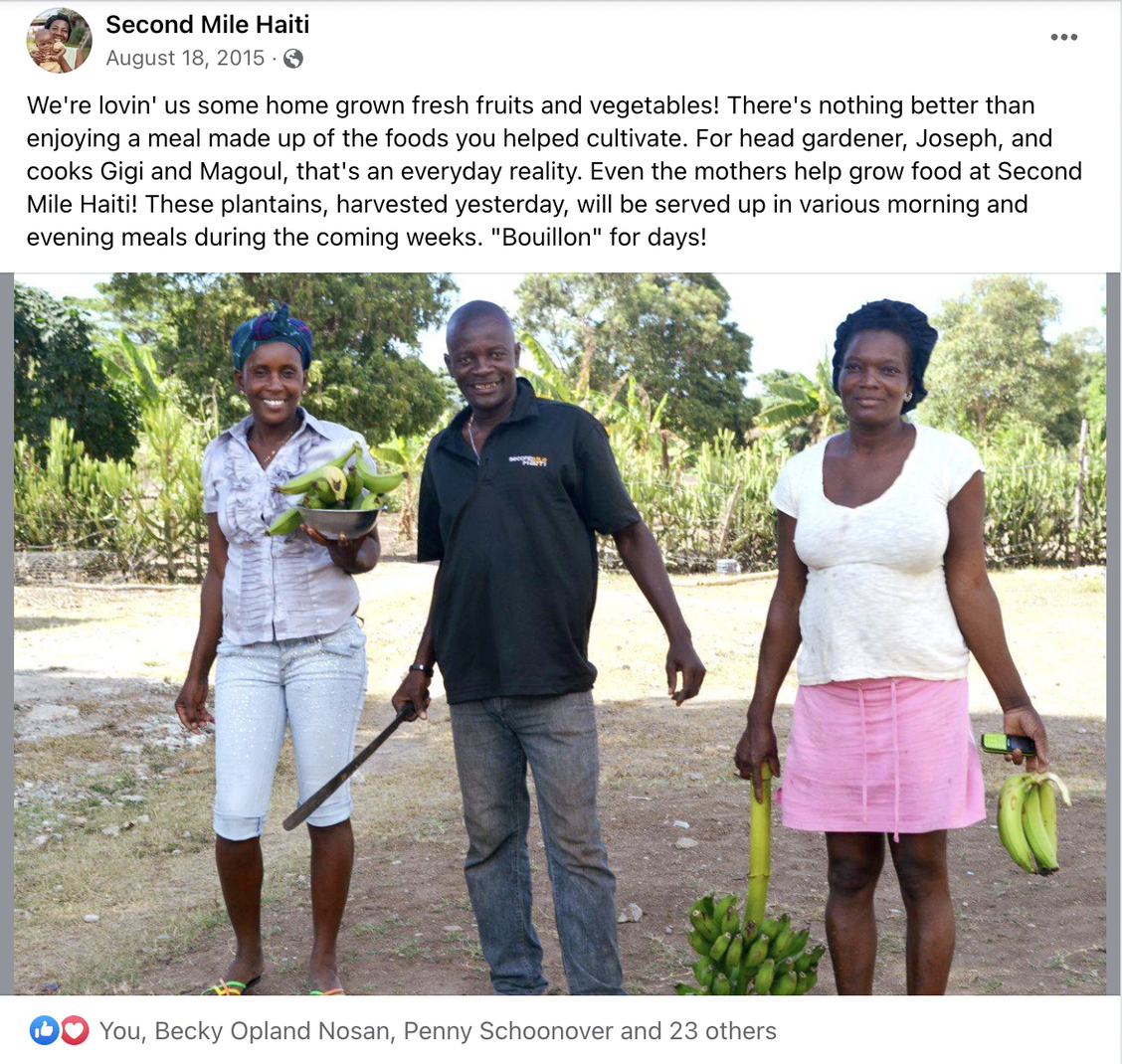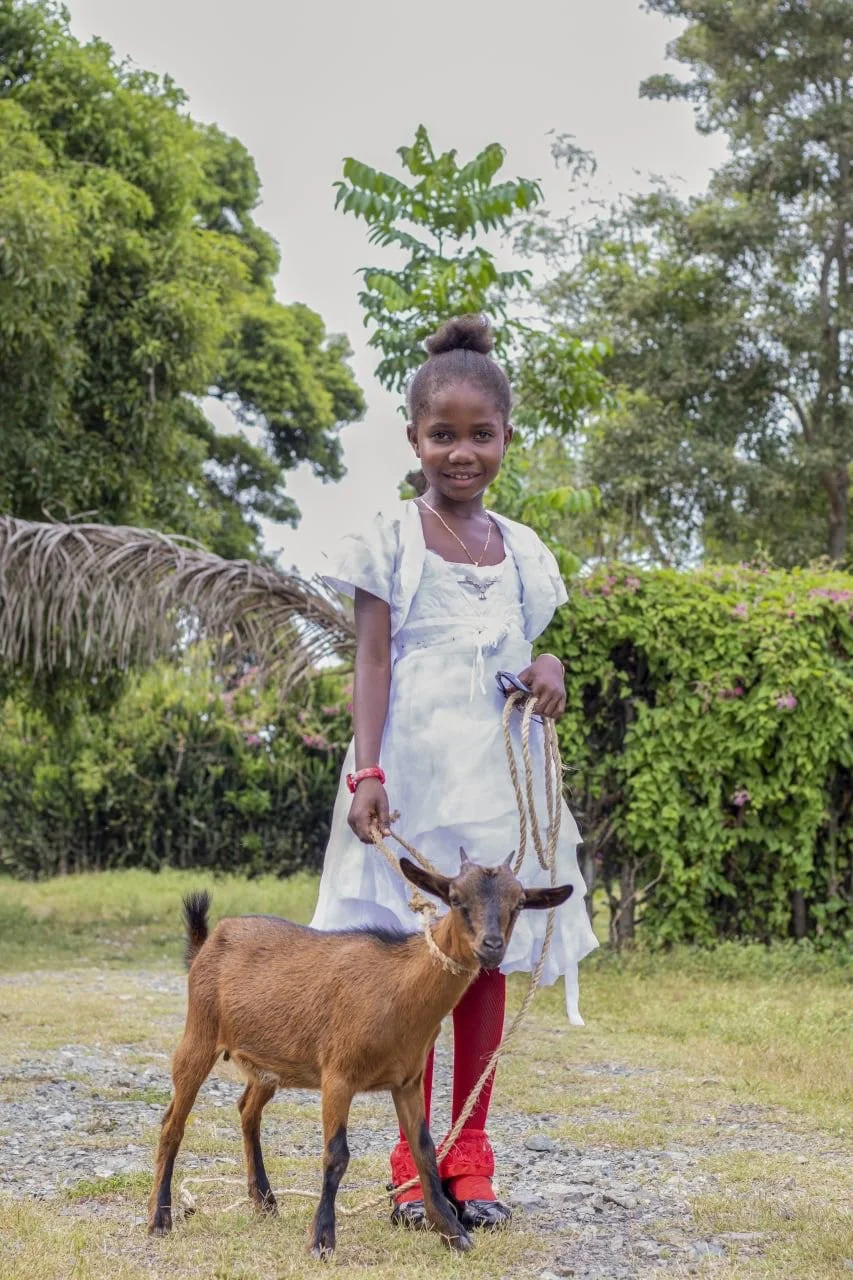Over the past few weeks our garden team has helped 172 women start vegetables gardens at home!
Women like Martha, and her neighbors!
You may have heard us talk about the gardens we have on campus.
But did you know why we started those gardens in the first place?
Yes, we wanted to grow food to help supplement the meals we make for staff and caregivers every week.
But more than anything, we wanted caregivers spending time at the Malnutrition Treatment Center to be able to learn more about how to grow different fruits and vegetables during their stay.
You may have seen us talk about how we aim to help every graduate of our Malnutrition Treatments Centers start a home garden.
But who teaches these skills?
Well, many people living in rural Haiti already know a lot about growing food! But the seeds that we share with families aren’t ones they’ve had experience with in the past.
That’s where our Agriculture Technicians come in!
We have a team of five experts who went to school for degrees in agronomy— the science of growing good!
Wisner (left) and Ange Marie (right) make up 2/3rds of our Cap Haitien team.
As the weather starts to get a little bit cooler in Haiti—high seventies to high 80s in November and December—it’s the perfect time to start as many gardens as we can.
The garden team is working at full speed and they get a little bit of help from the operations team when it comes time to deliver supplies—watering cans and a gardening tool—to the homes of our beneficiaries.
Every Second Mile graduate is asked to bring along 5 of their neighbors for the experience.
Martha is a mother who spent time at our center with her daughter in 2017. Her daughter is in the school program and she participated in the savings group.
When Ange Marie called her to say we were coming to her neighborhood, she had to think carefully about which of her neighbors she wanted to invite to participate.
Ultimately, Martha (center), chose people she knew would take the experience seriously. She picked people she believed would be enthusiastic and supportive of one another and work hard to keep their gardens alive.
At age 18, Chedeline, is the youngest of the group. She has the least experience with gardening, but wanted to participate because she knew that growing food was a way she could generate some income.
At 65, Philomena, is the most experienced. She’s been growing food since she was about 10 years old. Both of her parents were farmers and she remembers the days where nearly everything they ate came from the garden.
Micheline has grown okra because it’s a fast growing plant and produces a lot of food, and basil, because she likes basil tea.
But one thing that all 6 women have in common is this: they’ve never grown the types of plant varieties we focus on in this initiative—tomatoes, onions, cabbage, carrots, peppers, and amaranth (for it’s leafy greens).
This October, these six women and 160+ others have put their seeds in the ground and are waiting patiently for them to sprout.
Martha and her friends will be working hard to keep their young veggies plants alive over the next few months.
Send that green thumb energy their way!
Thank you for spreading
Until next time, love from Haiti 🇭🇹


























